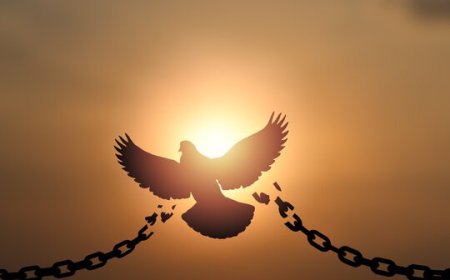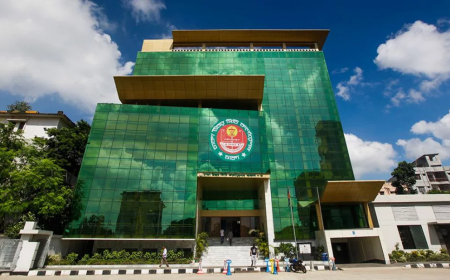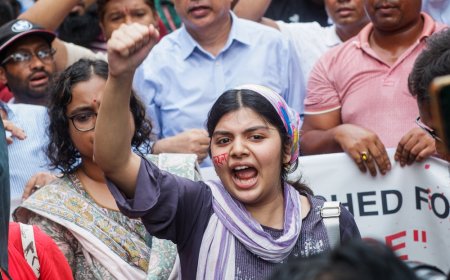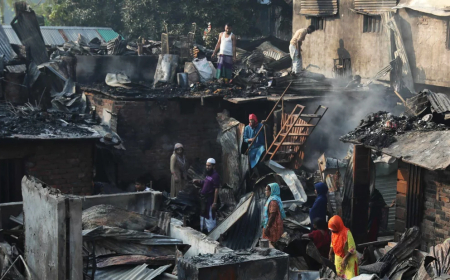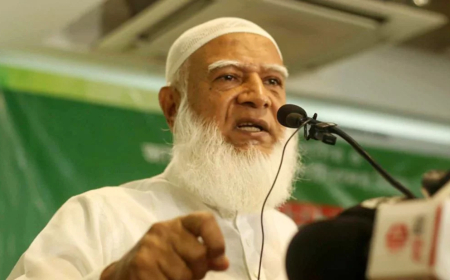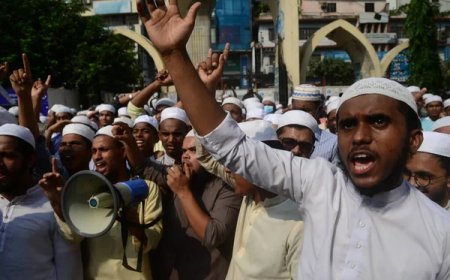From Fate to File: The Modern Tragedy of a Man Killed by Development
A nation’s worth is not measured in kilometers of rail, but in how it values those who walk beneath them. When a government can proudly announce five lakh taka for a death it caused, it tells us not how poor the country is, but how impoverished its conscience has become.
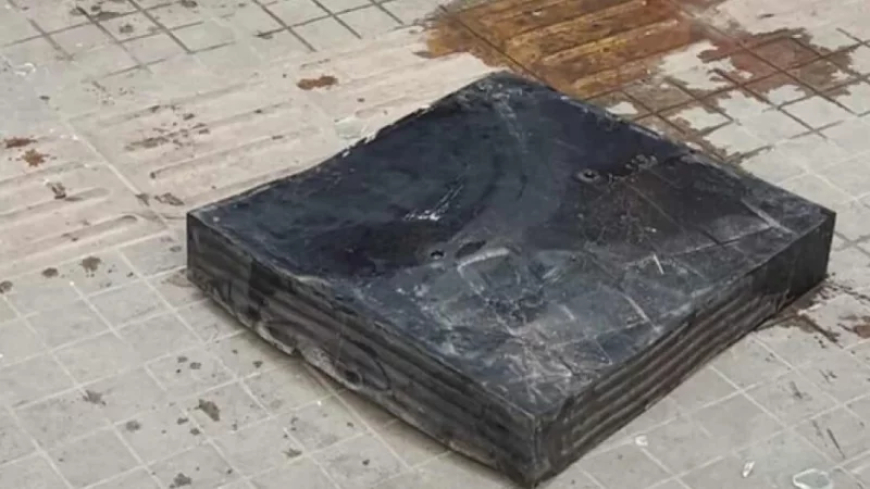
Abul Kalam Azad was walking home through Farmgate last Saturday evening when a bearing pad -- a block of metal meant to support the Dhaka Metro Rail viaduct -- came loose and struck him on the head. He died instantly.
Azad was 35, from Shariatpur, and worked at a travel agency in Uttara. He lived in Narayanganj with his wife and two young children.
Within hours, the government issued a statement: condolences to the family and five lakh taka in compensation. The announcement was made with bureaucratic composure, almost with pride -- as if efficiency itself were a form of compassion. Officials described it as “financial support,” a phrase that hides the obscenity of what it truly is: a price tag on a human life.
Azad’s family described the government’s offer as “very insignificant, unrealistic, ambiguous, and humiliating.” They are right.
Five lakh taka cannot even pay for one concrete pillar of the structure that killed him. It cannot sustain his wife and two small children for a single year. The amount would barely cover rent, food, and school fees for a few months. Yet the state announced it proudly, convinced of its own generosity -- proof that, in this system, a citizen’s life has been reduced to an administrative expense.
The Privilege of Visibility
Azad is, in a cruel way, lucky. His death took place in central Dhaka, beneath a billion-taka project celebrated as a symbol of development. The incident went viral on social media; cameras captured his body; reporters arrived within minutes. Under this glare, the government had to respond -- to show concern, to promise money, to perform empathy.
But most victims of infrastructural negligence die invisibly -- construction workers buried under collapsed walls, commuters electrocuted by loose wires, laborers burned in factories. Their deaths go unnoticed, unannounced, uncompensated. The state’s compassion is not moral but selective, activated only when the story threatens its image.
The Illusion of Compensation
Even for those who do receive promises, there is no guarantee they will see the money. Families must navigate endless paperwork, signatures, and approvals, often waiting months -- sometimes forever.
Corruption and delay eat through whatever little the state offers.
And even if the cheque finally arrives, it is no compensation. Five lakh taka cannot replace a father, a husband, a life. It cannot measure the loss of future income or the emptiness left behind. It is an insult disguised as help, a bureaucratic bribe offered to grief.
The cruelty lies not only in the smallness of the sum, but also in the confidence with which it is announced -- as though the state believes that a poor man’s death is worth so little, and that paying anything at all is a sign of benevolence.
From Fate to File
In classical tragedy, death was the work of fate -- a moral collision between human will and divine order. Oedipus fulfilled his prophecy; Karna died when the earth betrayed his chariot wheel. Death carried meaning, however cruel, because it revealed the limits of human power.
Our tragedies are bureaucratic, not divine. They unfold through contracts, committees, and layers of corruption. The bearing pad did not fall because destiny demanded a sacrifice; it fell because a chain of falsified inspections, cost-cutting contractors, and unaccountable oversight made it inevitable. This is not the story of one engineer’s negligence. It is the story of a state where transparency is absent, corruption is routine, and no one is ever held responsible.
Behind the fallen pad lies an entire system that has learned to kill quietly -- through carelessness, through silence, through paperwork. The difference between classical and modern tragedy is not just theological; it is moral.
The Greeks feared the wrath of the gods. We live under the apathy of bureaucracy. Their tragedies ended in catharsis; ours end in committees. A man dies, a report is drafted, and the conscience of power is cleared.
A Colonial Inheritance
This indifference did not begin today. The bureaucracy we inherited from the British was designed to control, not to care. Its purpose was to extract revenue, not to protect life. It ruled through paperwork, not empathy.
That legacy endures. We have replaced colonial masters with local ones, but the spirit of governance remains the same -- cold, hierarchical, self-preserving. Files move, forms are stamped, condolences are issued -- yet the living remain unseen. Every “committee formed” is a ritual of forgetting; every “compensation announced” a bureaucratic substitute for justice.
Bangladesh may build metros and expressways, but it still rules through the same colonial logic: the system matters more than the citizen.
The Moral Economy of Cheap Life
The Tk 500,000 payment to Azad’s family is not justice; it is accounting. It costs less to compensate a dead man than to reform the system that killed him. This is why death has become so cheap. The state spends billions on concrete but cannot afford accountability.
In countries where life carries moral weight, such a tragedy would provoke resignations and lawsuits. Here, it produces press releases and staged condolences. The difference is not wealth -- it is conscience.
Reclaiming Outrage
Abul Kalam Azad’s death must not be treated as fate. It was a killing by negligence -- the predictable result of a system that values speed and spectacle over safety and human life. Until we learn to name these deaths for what they are, to demand accountability instead of announcements, the bureaucracy will continue to turn tragedy into routine.
A nation’s worth is not measured in kilometers of rail, but in how it values those who walk beneath them. When a government can proudly announce five lakh taka for a death it caused, it tells us not how poor the country is, but how impoverished its conscience has become.
In ancient times, people feared the cruelty of fate. We must fear the cruelty of indifference -- for in today’s Bangladesh, death no longer descends from the heavens; it falls from a metro rail, stamped, signed, and compensated.
What's Your Reaction?










